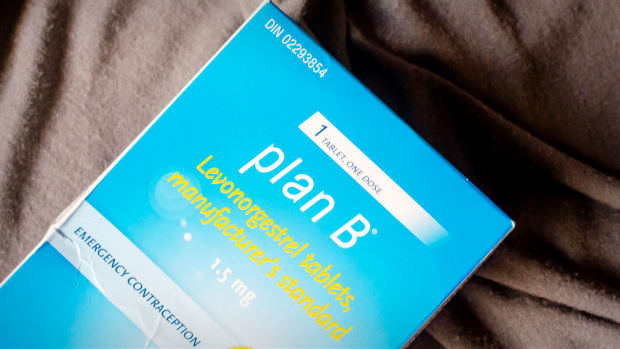The ripple effects of the Supreme Court's overturning Roe v. Wade are just starting to trickle through into a wide range of industries and fields.
One such ripple effect is the widespread purchasing of emergency contraception -- drugstore chain CVS (CVS) recently announced that it was placing caps on the number of Plan B and Aftera products customers can buy at a time to "ensure equitable access and consistent supply on store shelves."
The two are some of the most common brand names of the "morning after pill," which is commonly taken after an unprotected sexual encounter or failure of one's regular birth control.
The active drug in them is Levonorgestrel, which prevents ovulation or eggs from attaching to the uterus. Plan B and Aftera cost a respective $49.99 and $39.99 and are available over the counter.
"We have ample supply of Plan B and Aftera across all of our CVS Pharmacy stores and CVS.com," CVS Health Spokesperson Ethan Slavin said in a statement. "To ensure equitable access and consistent supply on store shelves, we’ve implemented a temporary purchase limit of three on these products."
This Is Very Different From Baby Formula
Most recently, CVS and other drug store chains Target (TGT) and Walgreens (WBA) placed similar limits on how many boxes of baby formula customers could buy at a time.
Back in April, out-of-stock rates for formula reached 31% nationwide and over 50% in states like Texas, North Dakota, South Dakota, and Tennessee amid pandemic-related supply chain issues and one of the country's largest producers closing a plant due to an FDA recall.
But while shortages of baby formula can be attributed to external factors that limited the numbers of available products, morning after pill limits appear directly linked to the panic coming from the Supreme Court's decision.
According to CVS, the limits were put in place to prevent panic-buying and profiteering rather than due to a product shortage.

Shutterstock
The repeal of Roe v. Wade, which was put in place in 1973, gives states individual power to ban or severely restrict abortion.
Analysts expect this to happen in roughly half of all states (the divide, as with many other things, will likely take place between "red" and "blue" states) while 13 states with "trigger bans" are already enacting laws to prohibit abortion in the next 30 days.
In one abortion clinic in Texas, providers fearful of violating the law were calling to cancel appointments within hours of the Supreme Court ruling.
As a result, many women in states most at risk of strict bans may be feeling panicked about the future.
As seen during the pandemic and the numerous shortages that came up in the aftermath, panic-buying can impact the supply chain and create very real shortages.
What Will Demand Be Like In A Post-Wade Future?
By Monday, reports started to come in of Walgreens (WBA) and Rite Aid (RAD) enacting similar purchase limits.
Some Plan B boxes on Amazon (AMZN) are also already being listed for above retail price.
The limit imposed by CVS was, as of June 28, three per customer. While the immediate rush of purchases is likely to die down after immediate news of the reversal, many health care advocates are already preparing for major upheaval in the public health care system, from states that do not ban abortions seeing large rushes of out-of-state women to larger demand for other types of contraception.







